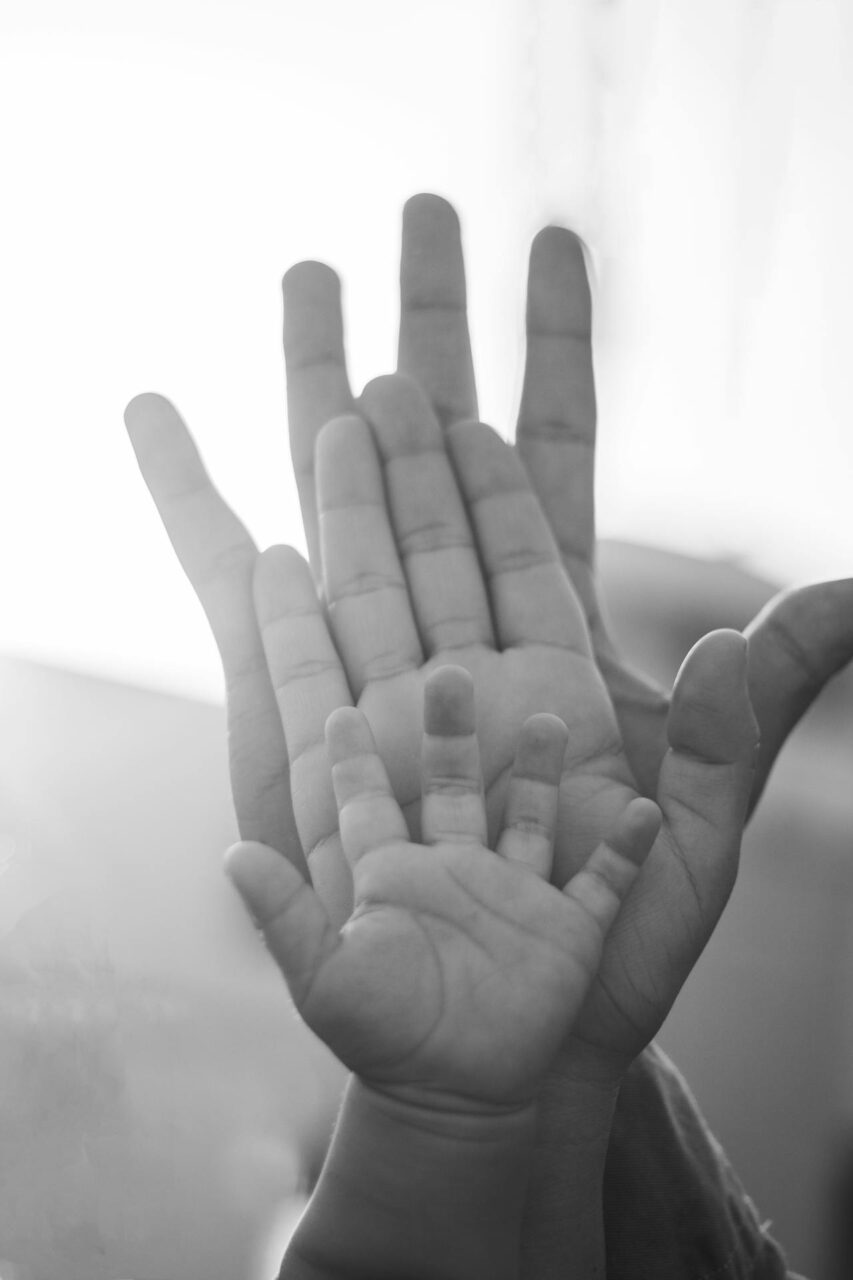
Join 130k subscribers and get the best of the week, straight to your inbox.
Mark Wolynn says in his book, It Didn’t Start With You, that trauma doesn’t sleep. It continues to look for fertile ground in the children of the coming generations.
We’re all carrying some baggage from the past and our environment. Like how we were raised, what our parents went through, or the silent rules that ran in our families for years.
You might have grown up in a home where emotions were never talked about, there was tip-toeing around a certain person, or a peaceful time was never there. All of which manifests into your personality because the family story is our story, and unless we break away from its negatives, we live with them.
As a result, many are now raising children with the heavy awareness that something feels off, but they can’t always name what it is.
If you’ve ever reacted in ways you couldn’t explain or caught yourself repeating patterns from the past, that could be the weight of generational trauma.
This is where the real question comes in: how to break generational trauma and stop passing it forward?
What is Generational Trauma?

Generational trauma is when emotional pain or unhealthy coping patterns are passed down from one generation to the next. They then pass (often without meaning to) on to their children, who may pass it on again until someone chooses to face it and heal.
And contrary to what you may think, this trauma doesn’t only come from big events like extreme poverty or abuse.
Generational trauma symptoms can show up in small family rules such as don’t talk back, hide your feelings, always put others first, don’t correct the elders, obey the parents, to name a few.
Generational Trauma Examples:
These things shape how we deal with life, and these patterns are often so normal within a family that nobody questions them. Here are some examples of generational trauma:
- A child grows up with a parent who never shows affection. As adult, they struggle with intimacy or avoid emotional closeness.
- A parent who was constantly criticized as a child may become overly strict or distant with their kids because they think that’s the way to raise them “right.”
- A family that was always short of money might raise children who fear spending money because they want more and more financial security, even if things are okay.
- A mother who never learned how to self-regulate might yell, withdraw, or shut down if she is tired or overwhelmed. Because that’s all she ever saw growing up.
- The woman raised in a home where emotions were seen as weakness now feels guilty for crying or needing help, and teaches the same to her daughter.
- Families who experienced war or forced migration may raise children to stay hyper-alert, fear change, or never trust systems, because that was once necessary to survive.
- A parent who experienced emotional neglect may have a hard time showing love to their kids, even if they want to.
- A generation of women who were told to “stay quiet and endure” passed down the belief that speaking up is rude, dangerous, or simply not their right.
- A parent raised in a home where mental health was taboo avoids therapy, even when their family clearly needs support.
How to Break Generational Trauma: 5 Steps You Can Take Today
Generational trauma in families can snowball if they keep it shushed and don’t encourage open dialogue. These families keep their pains a secret or move them forward in a damaging way—nothing good comes out of it either way. Here is how to heal generational trauma:
Loved this reflection?
Join The Now Edit — my weekly letter for women reimagining how they live, work, and show up in the world.
Soulful storytelling. Gentle Strategy. Real Tranformation.
By signing up, you’re agreeing with our terms and conditions.
Talk About It
You can’t heal it until you feel it, so when you want to learn how to deal with generational trauma, addressing it is the priority. Talking helps release what’s been stuck for years. Also, you don’t have to say everything at once or say it to everyone.
Choose someone you trust and speak openly about what happened in your family. Or sit down with your parents (if that’s an option) and ask them about their wounds that later reached you through their coping patterns.
The point is to name it because when something painful is spoken, it’s no longer a silent weight. Also, even if horrible things happened to or in your family in the past, if kids grow up in a home where adults speak honestly, they don’t carry silent guilt or confusion.
Make a Family Map
A simple family tree (called a genogram) written on paper can help you spot patterns that run in your family. Add key moments next to names, i.e., major losses, struggles, emotional patterns, illnesses, etc. This exercise helps you notice repetition.
For instance, you might see that people in your family shut down when they’re upset, or their anxiety shows up after financial pressure. This kind of mapping gives you a clear understanding of how unhealed traumas from the past reached you. Once you see the patterns, you can learn not to repeat them and handle things differently with yourself and the next generation.
Get a Trauma-Trained Therapist

You might not understand how to break generational trauma unless you seek help, especially if its impact shows strongly in you. A trained therapist will help you understand how trauma shows up in your body and mind, and how to calm it.
They use methods like EMDR (Eye Movement Desensitization and Reprocessing) to help you process painful memories by using guided eye movements and somatic therapy, which focuses on how trauma is stored in the body and uses physical awareness and movement to release stress and tension.
Therapists guide you through painful memories without making you relive them in a harmful way. You learn tools to handle emotional triggers and respond better to stress. The goal is to stop it from controlling your present.
Reparent Yourself
No one deserves a traumatic childhood, yet we get it somehow. Anyway. Some of our needs, like emotional safety, comfort, and patience, weren’t met growing up. The good thing is you can meet those needs yourself as an adult—this is called re-parenting.
It teaches you to change your inner dialogue and care for yourself in ways that may feel new. For example, you might learn to rest before you’re burned out, say kind things to yourself when you make a mistake, and allow your emotions without shame.
When you reparent yourself, it can:
- Change how you view others
- Help you learn what healthy relationships look like
- Rid your communications of overpowering self-doubts, shame, and guilt.
All of which brings us to the next step in how to break generational trauma.
Set Firm Boundaries With Hurtful Relatives
Hurtful relatives can wear your confidence down, make you walk on eggshells, and push you into the holes of self-doubt. Setting firm boundaries with them is non-negotiable for a happier, more healed life. If someone in your family still causes emotional harm through words, control, or manipulation, you must step back.
Boundaries give you the power to decide what kind of behavior you will and won’t accept as an adult. No matter what you were taught growing up, you can get away from people who dim your shine. Your boundaries can look like shorter visits, avoiding certain topics, or saying no without feeling guilty.
Be clear when you set these boundaries, and if you have kids, explain the changes to them so they don’t feel confused or responsible. Holding boundaries stops old patterns from creeping back in and helps build a more respectful environment at home.
You Don’t Have to Carry It All

Breaking generational trauma isn’t easy, but it’s possible. It starts with awareness and steady effort. You don’t have to keep living by the rules you never agreed to, and can unlearn what no longer serves you for a different future. If you want to stop letting the past shape your present, this work is worth doing. You deserve peace, and so do the people who come after you.
Suggested Reads:
FAQs
Does every family have generational trauma?
No, not every family carries major trauma. However, most families pass down stress or coping patterns from past hardships. Even small things, like emotional neglect or over-worrying, can stem from the family’s coping ways.
Can I break generational trauma even if my parents or relatives aren’t willing to change?
Yes, you don’t need others to heal. You can choose different behaviors and coping tools for yourself and your kids. You breaking the chain can give the next generation a future free of the emotional baggage.
What if I don’t remember much about my childhood? Can I still heal?
Absolutely. Trauma doesn’t require clear memories to be addressed. Shame, fear, and patterns can be felt without full recall. Therapy, tracking reactions, or mapping family histories improve understanding and healing.
Zakia Lott
More Like This:








